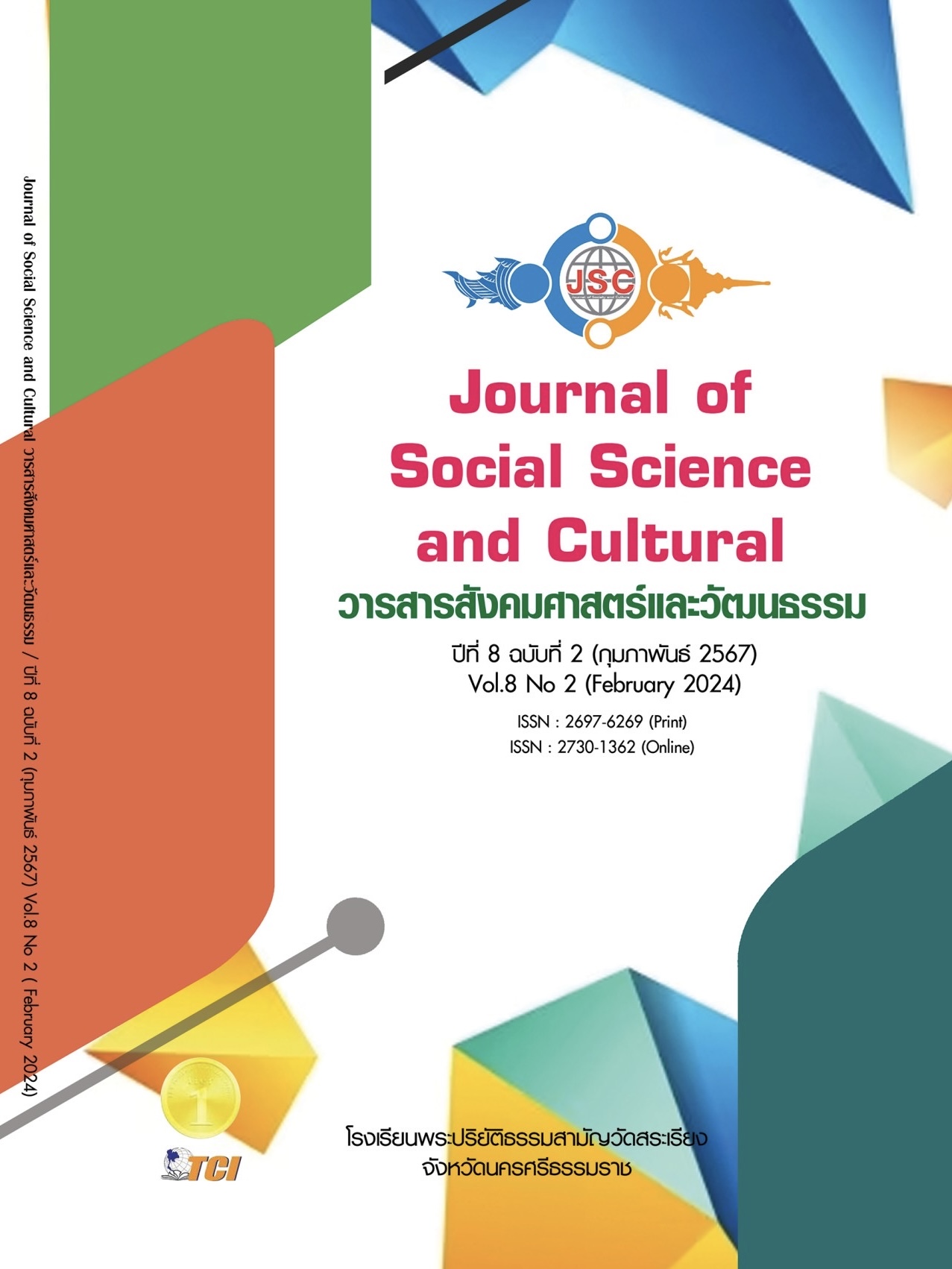TEACHER'S AUTONOMY : TOWARD SUCCESS IN TEACHING
Main Article Content
Abstract
Education is a crucial tool for the development of individuals with quality. Teachers play a particularly significant role in this development, and their independence is considered a key to success in quality teaching. The independence of teachers implies freedom in education, learning, and teaching. Teachers control the educational process and have a vital role in the societal change process. Teachers should possess knowledge, skills, and the freedom to create new things, preparing methods of communication and activities suitable for the needs and abilities of the community. If teachers exhibit these qualities, they can effectively transmit them to the learners and play a crucial role in building a better nation. The need and importance of teacher independence, both in terms of academic freedom and professional independence, are matters that society and relevant organizations must recognize and actively contribute to developing and solving problems. Presenting the independence of teachers is crucial in promoting success in teaching significantly. Teacher independence provides opportunities for presenting ideas and teaching methods suitable for students, pushing for a diverse learning environment, and stimulating creative thinking. Independence helps foster the development of students' independent learning skills, creating a space for them to develop problem-solving and analytical thinking skills appropriately. Teaching independence is the most crucial aspect of creating students who are capable of learning and adapting rapidly in the continuously changing world. It also opens opportunities for teachers to pursue further education based on their knowledge, abilities, and potential, enabling them to make more informed decisions.
Article Details
References
วันวิสาข์ เคน. (2559). “การเรียนรู้แห่งศตวรรษที่ 21”. กรุงเทพมหานคร: สำนักพิมพ์ Open worlds.
Yan, S. (2012). Teachers “ Roles in Autonomous Learning”. Journal of Sociological Research, 3(2), 1948-5468.
Aoki, N. (2002). Aspects of teacher autonomy: Capacity, freedom, and responsibility. In P. Benson & S. Toogood (Eds.), Learner autonomy: Challenges to research and practice (pp. 11–124). Dublin: Authentik.
Benson, P. (2001). Teaching and researching autonomy. Language Learning. London: Longman.
Bound, D. (1999). Developing Student Autonomy in Learning. New York: Koran Press.
Gardner, D. & Miller, L. (1996). Tasks for independent language learning. Illinois: Teachers of English to Speakers of Other Languages, Inc.
Holec, H. (2001). Autonomy in Foreign Language Learning. Oxford: Pergamon.
Kenny, B. (1999). For more autonomy. System, 21(4), 431-442.
Little, D. (1995). Learning as dialogue: The dependence of learner autonomy on teacher autonomy. System, 23(2), 175-182.
Littlewood, W. (1999). Defining and developing autonomy in East Asian contexts. Applied Linguistics, 20(1), 71-94.
McGrath, I. (2000). Teacher autonomy. In B. Sinclair, I. McGrath and T. Lamb (eds.) Learner autonomy, teacher autonomy: Future directions (pp. 100-11). London : Longman.
Sehrawat, J. (2014). Teacher Autonomy: Key to Teaching success. Maynila: BPS University.
Smith, R.C. (2000). Starting with ourselves: Teacher-learner autonomy in language learning. In B. Sinclair, I. McGrath and T. Lamb (eds.) Learner autonomy, teacher autonomy: Future (pp. 89-99). London: Longman.
Smith, R.C. (2001). Learner and teacher development: Connections and constraints. The Language Teacher, 25(6), 43-4.


